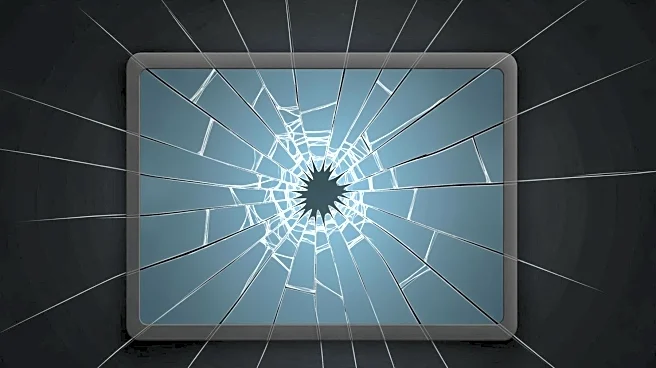What's Happening?
Ten individuals are currently on trial in Paris, accused of cyberbullying Brigitte Macron, the wife of French President Emmanuel Macron. The group, consisting of eight men and two women, faces charges
of sexist cyber-harassment for allegedly spreading false claims online that Brigitte Macron is actually a man. This trial follows a series of conspiracy theories that have targeted the French first lady, including claims that she was born as Jean-Michel Trogneux, a name that actually belongs to her brother. The defendants, if convicted, could face up to two years in prison. The trial also comes in the wake of a defamation lawsuit filed by the Macrons against conservative influencer Candace Owens, who has been accused of perpetuating these false claims to her large online following.
Why It's Important?
This trial highlights the growing issue of cyberbullying and the spread of misinformation online, particularly targeting public figures. The case underscores the challenges faced by individuals in the public eye, who are often subjected to baseless rumors and personal attacks. The outcome of this trial could set a precedent for how similar cases are handled in the future, potentially influencing legal standards for online harassment and defamation. Additionally, the involvement of a high-profile influencer like Candace Owens in spreading these claims illustrates the significant impact that social media personalities can have in shaping public discourse and the potential legal repercussions they may face.
What's Next?
The trial is expected to last two days, and its outcome could have significant implications for the defendants and for future cases of online harassment. If convicted, the defendants could face imprisonment, which may serve as a deterrent to others who engage in similar activities. The Macrons' defamation lawsuit against Candace Owens is also ongoing, and its resolution could further influence the legal landscape regarding online defamation and the responsibilities of social media influencers.
Beyond the Headlines
This case raises important questions about the balance between free speech and the protection of individuals from harmful and false narratives online. It also highlights the ethical responsibilities of social media platforms and influencers in curbing the spread of misinformation. The trial could prompt discussions on the need for stricter regulations and more robust mechanisms to protect individuals from cyberbullying and defamation.











